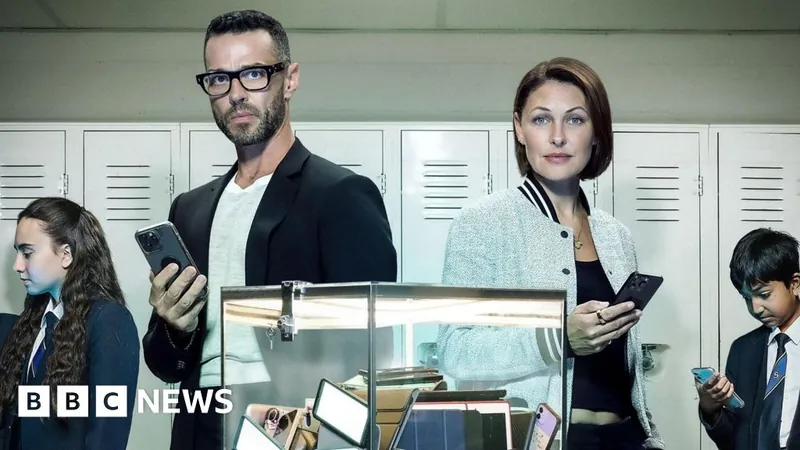
Are Smartphones Destroying Childhood? Colchester Students Go Phone-Free in Groundbreaking Social Experiment!
2024-12-11
Author: Jacques
Introduction
In a bold move to reclaim childhood from the clutches of screens, TV personalities Matt and Emma Willis have embarked on a social experiment that is capturing the attention of parents everywhere. Feeling they have 'lost their kids' to smartphones, the couple is partaking in a new two-part documentary series aimed at exploring the detrimental effects of smartphones and social media on children.
The Challenge at The Stanway School
At The Stanway School in Colchester, students participated in a unique 21-day challenge where they were asked to relinquish their smartphones. During this period, experts closely monitored their behavioral changes and emotional well-being to assess the impact of a phone-free life.
Parental Insights
Emma Willis expressed her concerns during a conversation with the BBC, stating, 'As we interacted with parents at the school, we realized we were all on the same page. Many parents feel like they are losing connections with their children due to their relentless attachment to devices.' This sentiment resonates deeply with the couple, who themselves have three children aged 15, 12, and 8—ages comparable to many Year 8 pupils involved in the experiment.
Participants' Experiences
Among the young participants was Harry, who confessed to spending a mind-boggling nine hours daily glued to his phone, absorbed in YouTube, gaming, and texting. Reflecting on the withdrawal from his digital life, he conveyed, 'It was dreadful. It felt like a part of me was missing. Something I relied on was now just sitting in a box, and I had to live without it for three weeks.'
In contrast, Scarlett found the experience enlightening. Surprisingly, during the smartphone hiatus, she reported no panic attacks or anxiety, suggesting this might stem from her removal from the pressures of social media. Scarlett shared, 'I realized that aimlessly scrolling through TikTok wasn’t helping my mental state; it was more beneficial to talk about my feelings instead.'
Observations from Educators
The results of this experiment have caught the attention of educators. John Player, the head of The Stanway School, commented on a noticeable shift amongst the students post-experiment, revealing that there was a staggering 17% decrease in anxiety symptoms among participants. 'The change was almost immediate,' he noted, highlighting the potential benefits of reducing screen time.
Conclusion
In light of increasing concerns, a recent report from the Education Select Committee has revealed alarming statistics: one in four children exhibit behaviors indicative of smartphone addiction. This underscores the urgent need for parents and educators to address the health implications linked to excessive smartphone use.
Could this experiment be a wake-up call for families everywhere? As the digital age continues to dominate our lives, the outcomes of Colchester's daring initiative may just pave the way for healthier childhoods and redefined relationships with technology. Stay tuned for the documentary—it might just change the way you view your screen time forever!









 Brasil (PT)
Brasil (PT)
 Canada (EN)
Canada (EN)
 Chile (ES)
Chile (ES)
 España (ES)
España (ES)
 France (FR)
France (FR)
 Hong Kong (EN)
Hong Kong (EN)
 Italia (IT)
Italia (IT)
 日本 (JA)
日本 (JA)
 Magyarország (HU)
Magyarország (HU)
 Norge (NO)
Norge (NO)
 Polska (PL)
Polska (PL)
 Schweiz (DE)
Schweiz (DE)
 Singapore (EN)
Singapore (EN)
 Sverige (SV)
Sverige (SV)
 Suomi (FI)
Suomi (FI)
 Türkiye (TR)
Türkiye (TR)